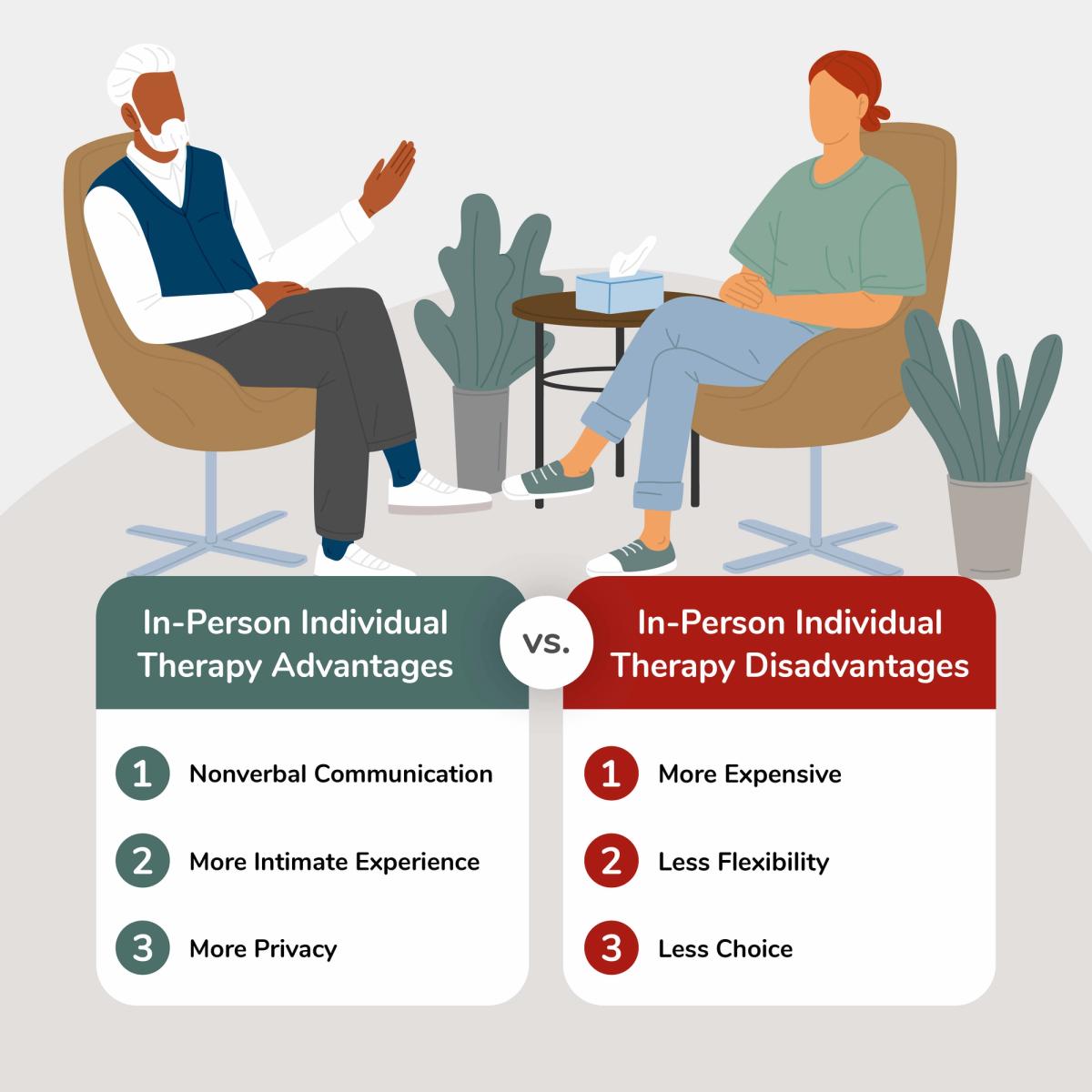7 proven strategies Individual Therapy For Teens helps manage stress and anxiety
Wiki Article
Exploring the Benefits of Mental Therapy for Adolescent Health and Development
Mental therapy plays a critical function in the health and development of young adults. Teenage years is a tumultuous period marked by emotional and social difficulties. Treatment uses an organized setting for teenagers to express their sensations and challenge their battles. It outfits them with essential tools for resilience and communication. As they navigate this developmental phase, the influence of treatment can be extensive. What details advantages can arise from such assistance throughout these formative years?
Comprehending the Teen Mind: Stress and obstacles
As teens browse the intricacies of their developing phase, they deal with many difficulties and stress that can considerably affect their psychological health and wellness. This duration is noted by significant physical, psychological, and social adjustments, which can cause feelings of confusion and unpredictability. Peer impact magnifies, often resulting in a struggle for approval and identification. Academic assumptions can produce additional tension, as the pressure to succeed places in a progressively competitive environment.Moreover, the arrival of social media sites presents a new layer of intricacy, where contrasts to curated online identities can intensify sensations of insufficiency and stress and anxiety. These variables can cause emotional distress, consisting of anxiety, clinical depression, and low self-esteem. Recognizing these challenges is crucial for moms and dads, educators, and psychological health specialists, as it offers understanding into the teenage experience and highlights the need for encouraging interventions to cultivate resilience and health during this important developmental stage.
Creating a Safe Area for Expression
Developing a risk-free space for expression is vital for teenagers steering their tumultuous developing stage. In restorative setups, this environment promotes open discussion, allowing teens to connect their feelings without concern of judgment. Such rooms enable them to explore their ideas and feelings, which is imperative for comprehending their identifications and experiences.When adolescents feel safe, they are more probable to share their struggles, consisting of anxiousness, depression, or interpersonal disputes. This open interaction can bring about deeper insights and help with individual development.
In addition, a safe space motivates imagination and self-reflection, offering young adults the liberty to share themselves through various outlets, such as art or writing. Developing trust fund between the therapist and the teenage is crucial, as it underpins the effectiveness of the therapeutic process. Ultimately, developing a secure room for expression offers as a structure for psychological recovery and personal development during these formative years.
Creating Coping Approaches and Strength

Specialists usually present techniques such as mindfulness, journaling, and problem-solving abilities, allowing teens to handle their responses much more efficiently. In addition, by involving in role-play scenarios, they exercise exactly how to deal with tight spots, strengthening their confidence. Gradually, these skills cultivate a sense of agency, outfitting teens with the tools to navigate life's unpredictabilities. The advancement of strength not just help in getting rid of immediate obstacles however additionally lays the foundation for healthier emotional responses in their adult years, ultimately adding to lifelong wellness.
Enhancing Communication Skills
Reliable communication abilities are important for young adults as they navigate complicated social landscapes. Mental therapy plays a vital role in boosting these skills, enabling teens to express their emotions and thoughts extra clearly. With led sessions, therapists motivate teenagers to articulate their feelings, promoting better understanding in peer interactions and family members characteristics.Furthermore, treatment gives a safe area for exercising energetic listening, compassion, and assertiveness. These skills empower teens to involve in purposeful discussions, willpower conflicts, and build stronger connections. As they learn to connect successfully, they additionally gain confidence in their capability to support for themselves and their needs.
Furthermore, boosted communication abilities add to emotional knowledge, allowing teens to acknowledge and react to the emotions of others. This alternative development fosters a supportive environment, ultimately promoting overall health and social assimilation. Via psychological treatment, teens can cultivate these vital skills for a healthier social experience.
Fostering Individual Development and Self-Discovery
Promoting personal growth and self-discovery in young adults entails a diverse technique that motivates understanding of individuality. This procedure likewise emphasizes the importance of structure durability skills and boosting psychological understanding. Together, these components produce a foundation for much healthier, a lot more positive individuals as they browse their formative years.Understanding Individual Identity
How do teens browse the complicated landscape of individuality as they venture for self-discovery and Full Article development? During this developmental duration, they grapple with numerous influences, consisting of peers, household, and social expectations. Mental treatment can work as an important device, read this offering a safe area for exploration and representation. Through assisted conversations, young adults can articulate their ideas and feelings, enabling them to understand their desires, worths, and ideas. This process promotes a much deeper understanding of their one-of-a-kind identity, encouraging them to make informed options and create a sense of function. As they take part in self-discovery, they find out to embrace their uniqueness and browse challenges with higher quality, ultimately improving their general health and personal growth.Structure Strength Abilities

Enhancing Emotional Awareness
Enhancing emotional recognition is critical for young adults navigating the complexities of adolescence, as it permits them to determine and comprehend their feelings better. By involving in mental therapy, teens discover to recognize their psychological actions and the triggers behind them. This process cultivates individual growth and self-discovery, allowing them to verbalize their emotions and deal with difficulties more expertly. As teens create psychological awareness, they grow empathy, boost connections, and enhance interaction skills. In addition, this increased recognition help in decision-making, helping them browse social pressures read and create a sense of identification. Ultimately, cultivating emotional recognition via treatment can cause much healthier coping mechanisms and an extra balanced emotional state, essential for thriving throughout these developmental years.Structure Healthy And Balanced Relationships and Assistance Solutions
While traversing the intricacies of teenage years, building healthy connections and assistance systems is vital for teens. These connections give emotional stability and a feeling of belonging, crucial throughout this developing stage. Positive partnerships with peers, family, and coaches can boost self-esteem and durability, allowing young adults to navigate difficulties a lot more effectively.Mental therapy plays an essential duty in fostering these connections by furnishing teens with interaction and conflict-resolution abilities. Through therapy, they discover to reveal their sensations, recognize various perspectives, and establish limits, which are essential for preserving healthy and balanced communications.
Moreover, supportive networks encourage teenagers to seek help when needed, decreasing isolation and promoting mental wellness. They are extra most likely to involve in useful habits and make informed decisions when adolescents really feel linked to their support systems (Individual Counselling Services). Overall, the farming of healthy and balanced connections and support group contributes in advertising teen wellness and personal development
Regularly Asked Concerns
Just how Do I Discover a Qualified Specialist for My Teenager?
To locate a qualified specialist for a teenager, one must seek referrals from doctor, research study qualifications on the internet, examine reviews, and identify the therapist focuses on adolescent problems, cultivating a supportive setting for growth.What Are the Expenses Related To Mental Therapy for Teenagers?
The costs connected with psychological therapy for teens differ extensively, generally varying from $50 to $250 per session. Insurance policy coverage, sliding range costs, and local resources can affect price and accessibility for households looking for assistance.
How Typically Should Teenagers Participate In Treatment Sessions?
Teenagers should ideally go to treatment sessions once a week or biweekly, relying on private requirements. Regular sessions can promote a risk-free room for expression, while permitting specialists to monitor progress and change techniques efficiently gradually.Can Therapy Be Effective for All Teens?
Treatment can be effective for many teens, yet private results differ. Variables such as individual circumstances, openness to the process, and the healing method utilized all affect its efficiency for every teen.What Should Parents Do During Their Teenager's Treatment Refine?
Moms and dads must actively support their teenager's treatment procedure by keeping open interaction, appreciating discretion, participating in sessions if invited, and motivating their kid's efforts (Individual Therapy For Teens). Understanding and persistence are crucial as teenagers navigate their individual growth journeyPsychological treatment plays an essential function in the well-being and development of teens. By engaging in psychological therapy, adolescents find out to acknowledge their emotional feedbacks and the triggers behind them. Mental therapy plays an essential function in fostering these partnerships by gearing up teens with interaction and conflict-resolution skills. Teens ought to preferably go to treatment sessions regular or biweekly, depending on specific requirements. Moms and dads must proactively support their young adult's therapy procedure by preserving open interaction, appreciating discretion, attending sessions if welcomed, and encouraging their youngster's efforts.
Report this wiki page